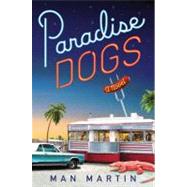
Man Martin spent his childhood in Florida and Georgia and currently teaches high school English in Atlanta. He is the author of Days of the Endless Corvette, which won the 2008 Georgia Author of the Year Award for First Novel.
The New copy of this book will include any supplemental materials advertised. Please check the title of the book to determine if it should include any access cards, study guides, lab manuals, CDs, etc.
The Used, Rental and eBook copies of this book are not guaranteed to include any supplemental materials. Typically, only the book itself is included. This is true even if the title states it includes any access cards, study guides, lab manuals, CDs, etc.